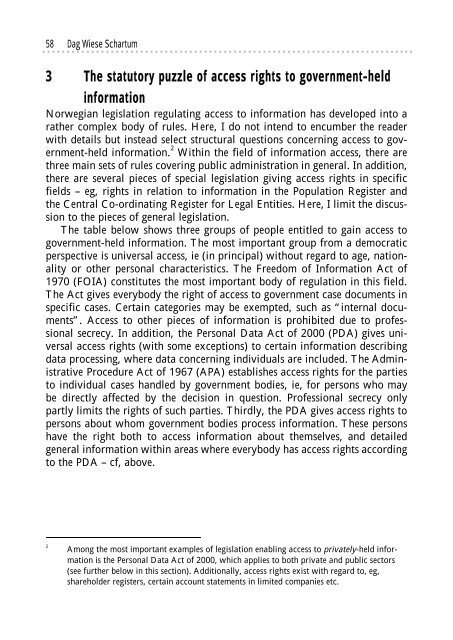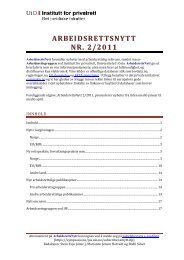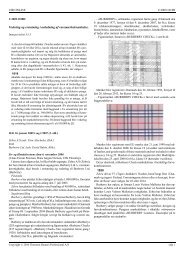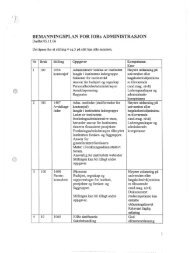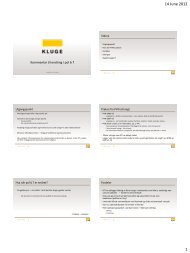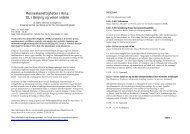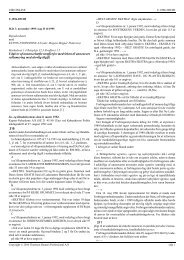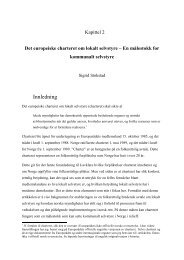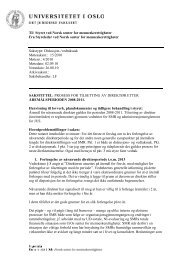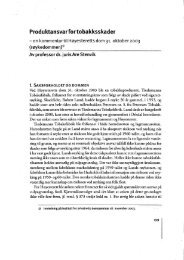Lee A. Bygrave (red.) YULEX 2002 - Universitetet i Oslo
Lee A. Bygrave (red.) YULEX 2002 - Universitetet i Oslo
Lee A. Bygrave (red.) YULEX 2002 - Universitetet i Oslo
You also want an ePaper? Increase the reach of your titles
YUMPU automatically turns print PDFs into web optimized ePapers that Google loves.
............................................................................<br />
58 Dag Wiese Schartum<br />
3 The statutory puzzle of access rights to government-held<br />
information<br />
Norwegian legislation regulating access to information has developed into a<br />
rather complex body of rules. Here, I do not intend to encumber the reader<br />
with details but instead select structural questions concerning access to government-held<br />
information. 2 Within the field of information access, there are<br />
three main sets of rules covering public administration in general. In addition,<br />
there are several pieces of special legislation giving access rights in specific<br />
fields – eg, rights in relation to information in the Population Register and<br />
the Central Co-ordinating Register for Legal Entities. Here, I limit the discussion<br />
to the pieces of general legislation.<br />
The table below shows three groups of people entitled to gain access to<br />
government-held information. The most important group from a democratic<br />
perspective is universal access, ie (in principal) without regard to age, nationality<br />
or other personal characteristics. The Freedom of Information Act of<br />
1970 (FOIA) constitutes the most important body of regulation in this field.<br />
The Act gives everybody the right of access to government case documents in<br />
specific cases. Certain categories may be exempted, such as “internal documents”.<br />
Access to other pieces of information is prohibited due to professional<br />
secrecy. In addition, the Personal Data Act of 2000 (PDA) gives universal<br />
access rights (with some exceptions) to certain information describing<br />
data processing, where data concerning individuals are included. The Administrative<br />
Procedure Act of 1967 (APA) establishes access rights for the parties<br />
to individual cases handled by government bodies, ie, for persons who may<br />
be directly affected by the decision in question. Professional secrecy only<br />
partly limits the rights of such parties. Thirdly, the PDA gives access rights to<br />
persons about whom government bodies process information. These persons<br />
have the right both to access information about themselves, and detailed<br />
general information within areas where everybody has access rights according<br />
to the PDA – cf, above.<br />
2<br />
Among the most important examples of legislation enabling access to privately-held information<br />
is the Personal Data Act of 2000, which applies to both private and public sectors<br />
(see further below in this section). Additionally, access rights exist with regard to, eg,<br />
shareholder registers, certain account statements in limited companies etc.


